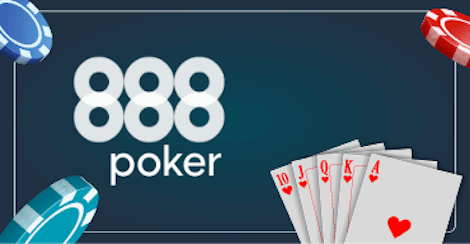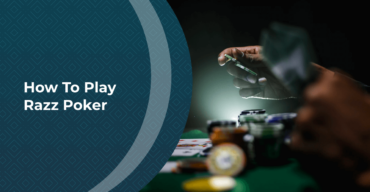Introduction
There’s no card game more popular than poker. It has attained near-mythical status thanks to an immeasurable number of movies and TV shows revolving around high-stake poker games. Poker is seemingly simple but gives space for countless strategies, calling for a deeper understanding of the game.
Here, we’ve gathered a number of poker tips that should prove extremely useful to both absolute beginners and regular players struggling to increase their win rate. Note that, while effective, no poker strategy will guarantee constant wins, even to the best players in the world. However, if implemented correctly and over time, they will massively improve your play.
While these tips were made with Texas Hold ’em in mind, most of them can be applied to other poker variants as well.
1. Learn the rules thoroughly
This one might seem like a no-brainer, but a surprisingly large number of players have an incomplete understanding of the game. One of the most important poker tips for beginners we can give you is to dedicate considerable time to learning and memorising all the rules.
An essential rule to learn by heart is the hand ranking system. Knowing the relative strength of each hand is paramount to making the right calls during the game. This knowledge is an essential backdrop of every hand you play, as it allows you to calculate possible ranges of other player’s cards and strategise accordingly.
2. Start from practice and low-stake games
You might feel the urge to immediately go into high-stake games, lured in by the promise of massive winnings and adrenaline-packed games. However, most online poker tips will tell you to stick to practice or low-stake games at first. This advice rings true for several reasons.
First of all, these tables represent an excellent polygon for learning how to play poker. You can read the rules all you want or even practice against AI, but only by playing against real players will you actually learn to play. While playing against advanced players has its benefits, as you might pick up some elaborate strategies, it’s best to start off by playing against similarly-skilled competitors. You’ll be able to brush up on your skills and start applying various tips you’ve accumulated while keeping the risk of losing as low as possible.
Additionally, you’ll be able to put poker cash game tips to use much more effectively if you’re playing with your peers. This will allow you to improve progressively, bringing you closer to higher-stake games.
Lastly, we would recommend you move away from the no-money practice games as soon as possible. They’re great at the very beginning when you’re still learning the ropes and mastering basic poker strategies. However, as long as there’s no cash stake in play, you won’t really understand the risks and play accordingly.
3. Be a tight, smart, and aggressive player
The third of our poker tips and tricks is not to be too wide or passive. What does this refer to? A wide or loose style means playing a wide variety of hands. Being passive relates to playing with a fear of losing, rarely betting, and avoiding confrontation. Any good poker guide will tell you to take up a diametrically opposite tactic – tight and aggressive.
This entails playing a smaller number of hands, preferably strong ones. Of course, being able to tell what constitutes a strong hand is a skill you gain by playing. Additionally, being aggressive means not being afraid to call or bet your chips.
Playing aggressively can be of enormous help, especially when playing with beginners and non-skilled players. This is not one of the advanced poker tips, but it is among the most important ones. Playing tight will help you hold better hands in the pre-flop phase of the match, while an aggressive style will put pressure on your opponents.
4. Don’t limp in pre-flop
Even absolute poker beginners have heard the advice not to limp in pre-flop. Contrary to popular opinion, there are situations in which this play makes sense. Still, for the most part, you should stick to this piece of advice and incorporate it into your online poker strategy.
Ok, so it’s one of the core tips for playing poker, but what does it really mean? Limping refers to entering the pot by calling instead of raising during the first betting round. If you’re the first one to limp in the pot, it’s called an open limp; if someone limped before you, it’s referred to as limping behind or over-limping.
The reason why open-limping is considered flawed is that you can’t win the pot preflop. Moreover, you’re not only implying you don’t have a solid hand, but you’re also giving other players better pot odds. This increases the likelihood of facing multiple players, which decreases your chances to win.
However, over-limping can be counted among helpful poker tips as you’ll be getting good pot odds and can hope for a good card combination during the flop.
Instead of open-limping, raising can give you a much better idea of what the other players have in their hands. Other players might potentially fold if you raise, allowing you to snatch the pot uncontested.
5. Assess your opponents’ hands
It goes without saying that the cards in your hand will determine your playing style for the round. A weak hand might cause you to play more defensively, calling or folding when push comes to shove. While the cards you have will always have a huge impact on your plays, poker pro tips reveal that thinking about what hands your opponents might have is equally important.
The beauty of poker lies in the multitude of strategies and plays it allows for. If the game revolved solely around determining which player has winning poker hands, it would be just a basic game of chance. But poker is much more than that, giving space for players to play mind games against each other. During the game, you’ll often wonder whether your adversary has a strong hand or he’s just bluffing.
While bluffing is a constant threat, there’s no reliable strategy to determine when someone’s bluffing, as it depends on both your opponent and your own experience or “mind-reading” capabilities.
Still, the best poker tips revolve around helping you make accurate assumptions about what cards your opponents hold based on their plays. For example, betting after the flop usually signals strength, while checking might be a sign of a weak hand. A player’s position also affects their play, while the board texture affects the number of strong hands each player will have throughout the game.
These are just a few of the many signifiers you need to keep an eye out for during play. Making correct predictions on the relative strength of your opponents will help you immensely, telling you when to play aggressively or conservatively.
6. Don’t bluff too often or with very weak hands
As our online poker tips and tricks above note, bluffing is a fundamental mechanic in poker. You’ve also probably seen numerous movies where bluffing plays a pivotal role in a tense poker scene. However, while you should rely on bluffing to make the most out of your weaker and mediocre hands, don’t overdo it.
Bluffing frequently will dramatically decrease its effectiveness, which in turn will cause you to lose more. Putting a lid on your own bluffing is one of the basic tenets of Texas Hold ’em strategy, and you’d do well to incorporate it into your play.
When you don’t hold a very strong hand, you can resort to an approach many poker strategy tips refer to as semi-bluffing. This tactic includes bluffing in two cases: when you have an opportunity to make your opponent fold or when there’s a chance to improve your hand on future streets and win in the showdown.
We’ve already spoken about the importance of aggressiveness in your plays. When you notice that an opponent may have a weak hand or is generally a less-skilled player, you should try testing them with bets or raises to see how they respond. In a lot of cases, you’ll be able to pressure those players into folding.
Tips for this poker tactic are extremely useful, but remember to use both variants. Faced with skilled players, playing aggressively constantly can put you in a bad spot, especially if someone calls your bluff while you’re stuck with weak cards. However, if those cards have the potential to form a better hand later in the game, you have a solid backup plan in place.
7. Defend the big blind
If you’re trying to learn how to play poker more efficiently, defending the big blind is a tactic you should employ when possible. This refers to calling in the pre-flop phase when you’re in the big blind position.
This strategy is regularly found among Texas Hold ‘em poker tips because it provides excellent pot odds if you call. With that in mind, it simply makes sense mathematically to defend the big blind.
More Poker Knowledge
Secondly, defending the big blind is a good way to ward off aggression from the raiser. By calling in this situation, you’re showing strength, making it clear to the other players you won’t bow down to pressure.
Note that you shouldn’t apply this strategy with absolutely every hand. It doesn’t pay off with really weak hands, but it’s worth a shot when holding semi-weak hands. Of course, other important factors to keep in mind are the size of the stake and your stock, the position of the raiser, and so forth.
8. Know when to fold
Pro poker tips often mention the importance of folding. This may seem counterintuitive to some people, as we tend to associate folding with defeat. This is the wrong way to go about it, as folding is an integral part of poker. Therefore, both seasoned players and those still learning poker basics need to know when to fold.
As with other tips on our list, there are multiple facets of proper folding and several factors to pay attention to. First, you need to learn to let go of weak hands, even if you prefer a particular combination for one reason or another. Poker tips for Texas Hold’em often focus on telling you to practice folding those top pairs and overpairs – hands that in some situations you might consider strong.
This is especially important in low-to-medium-skill games where players might not be as good at bluffing, and you have clear cues of an opponent having a strong hand. If someone who’s been calling throughout the game suddenly starts raising, it’s probably a good time for you to fold. The best way to learn poker is to work on letting go of hands you’re emotionally attached to and go against your instincts, focusing on odds and chance.
9. Don’t tilt
This might be one of the more self-evident poker tips. Poker games can be highly stressful. There’s money on the table, your luck might be rotten, and you might end up losing rounds you were sure you’d win. This can easily lead to tilting – a state of mental and emotional confusion that makes you throw your strategy and planning out the window. This will, naturally, just make a bad situation worse. Tilting is an easy way to lose all your money extremely quickly, as you abandon all semblance of strategy, tactical thinking, and your ability to bluff.
Like many of the online poker tips we’ve laid out, this all sounds easy on paper. However, in the heat of battle, emotion can easily defeat the rational part of you if you’re not careful. Just practice and always try to remind yourself of your training. Tilts are bound to happen; the point is to make them rare and less damaging.
10. Play only when you feel like it
Another easy way to ruin your poker statistics and lose money is by playing when you’re not up for it. Leave it to the pros to treat poker like a job. Playing when you’re nervous, tired, or just plain bored won’t net satisfying results.
Playing poker should be fun, even when a lot of money is involved. Focus on learning all poker playing tips and rules we’ve shown you, start from lower-level games, try to find a poker site with generous bonuses, practice while you’re on the move, and you’re sure to improve significantly.
FAQ
What is the best way to win at poker?
Learn the rules, start from lower-skill games, play tight and aggressive, don’t over-bluff, learn how to analyse other players, know when to fold, and don’t play when you’re not in the mood.
How do you win at poker every time?
There’s absolutely no way to win a poker game every time. Even the poker elite loses, and no poker tips and strategies can help you attain a 100% win rate. While poker is primarily a game of skill, luck is involved as well, and lady Fortuna won’t smile on you each and every time.
How can I improve my poker?
Practice constantly, learn poker odds and hand combinations, and work on your mental discipline. Use tactics that give you the best chances of winning and take calculated risks.
Is poker skill or luck?
Luck plays a significant role, as it determines the hand you’re dealt as well as the community cards. However, what you do with what you’re given is all skill, and it separates the good from the bad players.
Can you consistently win at poker?
Poker tips can help you massively increase your win rate. While learning the tricks of the trade won’t make you a winner every single time, after a while, you’ll be able to win most lower-stake games. However, when you reach a higher skill level, you’ll start playing against great players. This will make winning consistently harder, so be prepared to constantly up your game.





